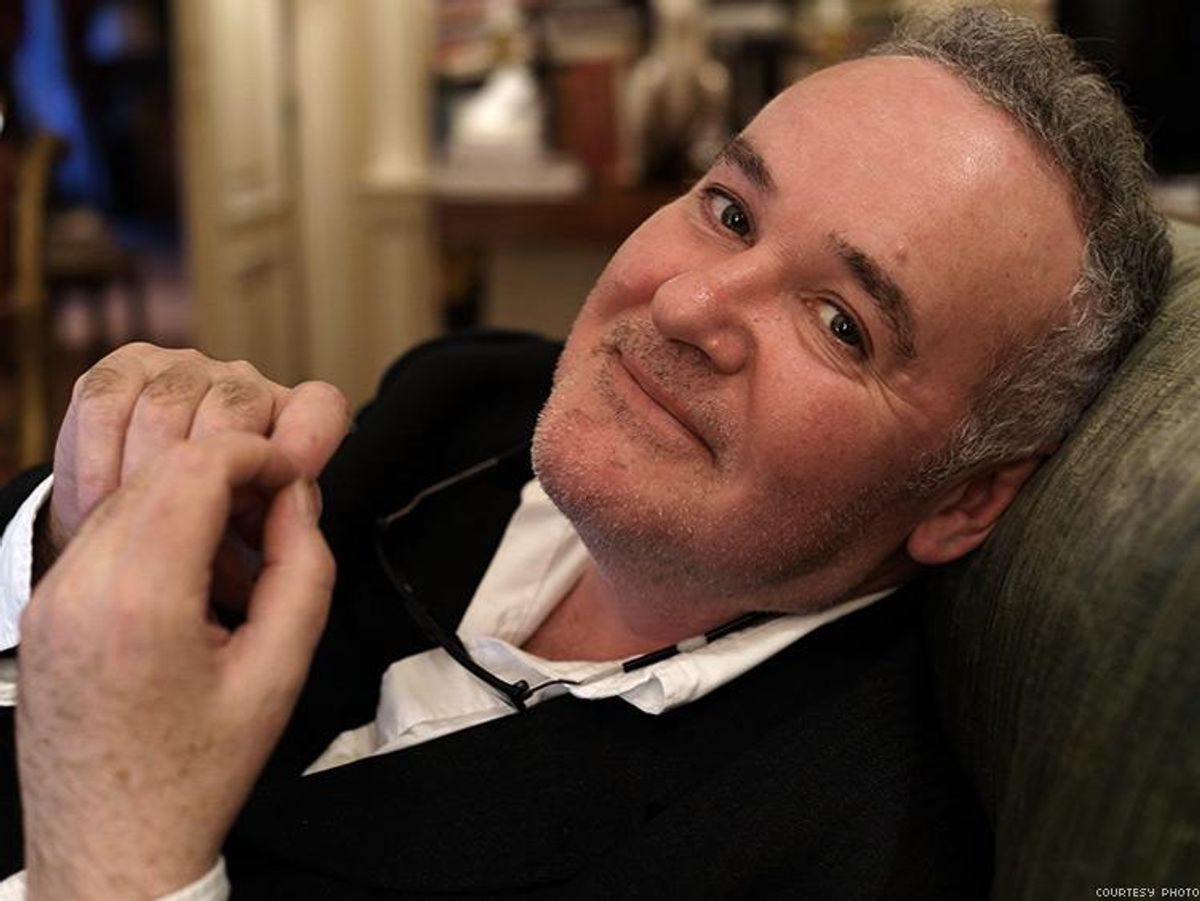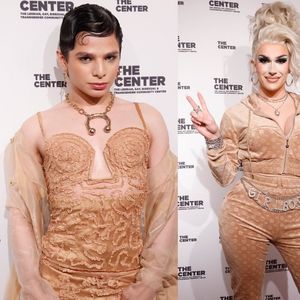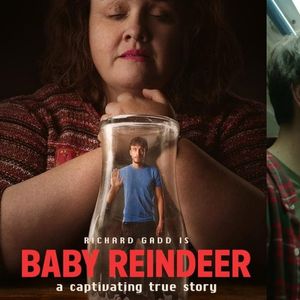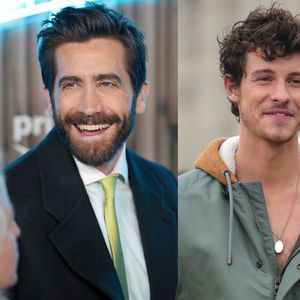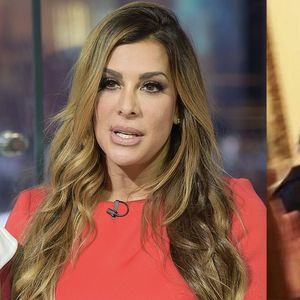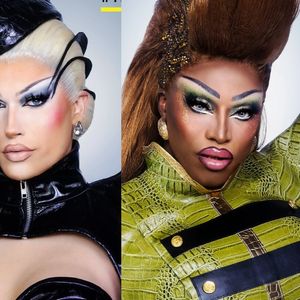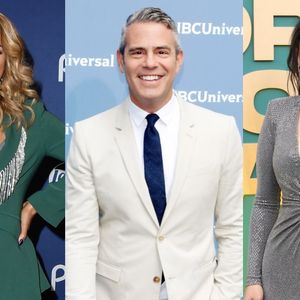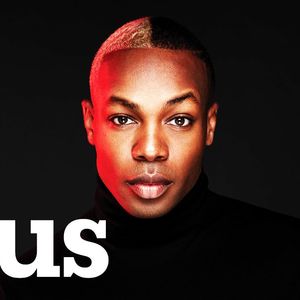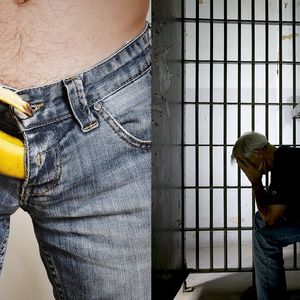Does it feel like we're living in a prime-time drama right now? If you answered affirmatively, you're not alone. Documentarian Adam Curtis made a BBC film, HyperNormalisation, about the current state of humanity and how a complex world has been diluted down by powerful corporate interests to a fake existence of heroes and villains, right and wrong. People like Donald Trump and Nigel Farage have manipulated that reductive thinking into world-shaking victories. We spoke with Curtis about his movie and how we can return to a more intelligent, nuanced understanding of our existence.
The Advocate: What does the title HyperNormalisation mean and why did you want to tackle the topic?
Curtis: It's a term that was used by a Russian writer Alexei Yurchak to describe the mood in Russia in the 1980s as the Soviet Union was beginning to fall apart. He describes how everyone who lived in Russia knew that the society had become fake. They knew that most of the bureaucrats who ran the system realized that everything was absurd. They knew that all the political leaders didn't believe in anything anymore. And that the whole system was corrupt. But no one had any vision of any kind of alternative system. So everyone just accepted the fake world as normal, because they couldn't imagine anything else. And he called this feeling "hypernormalisation."
I use the word for my film because I sense that in the West -- in Europe and America -- we may be getting to the same point. I am not saying that our system is like the Soviet Union. But I do think that the same feeling -- that everything is very odd, often fake, and increasingly corrupt -- is spreading through our societies. But, yet again, no one can imagine any alternative. No one in the West -- and that includes all the liberals and the opposition on the left -- has any vision of another kind of future. So we live in a hypernormal world.
Your editing of found footage is as exquisite as it is eerie. How do you structure your editing and writing process?
I start with stories. Nothing beats a story that surprises you but which also makes you look at the world in a fresh and different way. But then I start to look at all kinds of footage. I work in the BBC in London, and it has one of the biggest archives in the world. So I just immerse myself in it. Firstly, looking for specific footage to illustrate the stories, but then increasingly just drifting through footage. I tend to defocus and just watch -- and if I spot a piece of film that somehow is odd, or has a kind of mood to it, then I copy it. Sometimes it is even one shot. And I suppose what is guiding me is the mood that I want to create in the film, as much as the straight storytelling. Film journalism is as much about taking people into a world where they can immerse themselves in the story -- not just through images, but also through music and odd noises. And I spend a lot of time in dark rooms just watching. Sad, really.
How do you cope in a world where politicians "know that we know they lie"?
If you mean me specifically, then I try and do what I think journalism needs to do at the moment. And that is to show people where the real power is in the world today. Where are the forces that really shape your life and your destinies -- but which are more and more unaccountable to us and to the political process.
One of the really important things of the past 20 years is how politicians on both the left and the right have been persuaded to give much of their power away -- to finance, the systems of corporate management, and the computer networks and information systems. Those who run them present this as "efficient" and neutral. But it's not. It disempowers millions of ordinary people and leaves them without a way of challenging that power when it does bad and uncaring things.
And the reason is that politicians increasingly lie -- or make claims that everyone knows are fake -- is both to try and disguise their lack of real power, and also because they know that the people increasingly have no way of challenging them because the power has shifted to unaccountable elites. So the first thing is to bring that massive shift of power into focus. And that is one of the things I tried to do in HyperNormalisation.
What is the best way to resist in the age of Trump?
The first thing -- and this is so important --stop insulting the people who voted for Donald Trump and for Brexit. Stop calling them "ignorant" and "stupid."
To resist properly and to change power in the world, you need to act collectively, and to do that you have to get as many people as you can on your side. They didn't vote for Trump because they were stupid. They voted like that because they are scared and angry and frightened in a world where they and their families seem to have no future. And the liberals and the left have totally failed over the past 20 years to engage with those deep feelings of anxiety and fear that millions of ordinary people have today. The liberals have drifted off into their own bubbles. The first thing is to go and make common cause with those people. That is how real power to change the world is created. All of us together. Then we are powerful.
What can LGBT viewers learn from HyperNormalisation?
I think the main one is that at this very scary and dangerous point in the politics of the West people must not retreat into their own groups. They must reach out and connect with other groups who are oppressed in different ways but feel equally uncertain and isolated in the modern world of harsh power.
And I think that it is important to realise how the feeling that everything is fake today tends to drive people away from that and back into the safety of their own groups. And I think that is dangerous.
HyperNormalisation shows the roots of the world of "fake news" and growing unreality lie deep in our society. They did not just emerge with Donald Trump. They go back years -- to politicians, economists, PR people, and internet utopians -- who, rather than face up to the growing complexity of the world, retreated. And as they retreated they created an increasingly simplified version of the world. An almost childlike vision of goodies and baddies that lulled everyone to sleep into a dream. And the most important thing to realize is that we the people went along with it. We retreated too -- into the contented bubbles online where we only talk to people who share our views and never have our ideas or views questioned. We didn't just allow it to happen, we were part of that giant retreat into a fantasy world. That is really important to realize, because it is only by coming out and properly engaging with reality and understanding the complexities of modern power that we are going to make the world better.
Or we can carry on dreaming in our contented bubbles. If that is what you want.
---
Adam Curtis is an award-winning journalist and documentarian for the BBC. The Cinefamily in Los Angeles is hosting A Weekend With Adam Curtis March 17-19.
Watch an exclusive clip from HyperNormalisation below.
